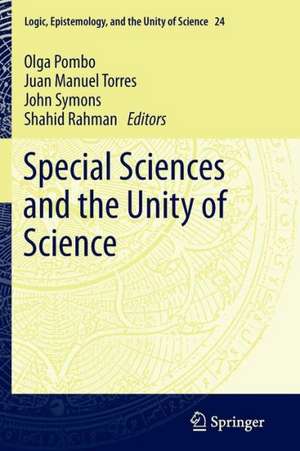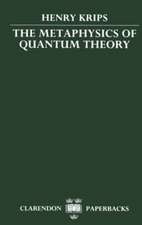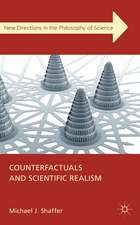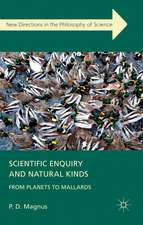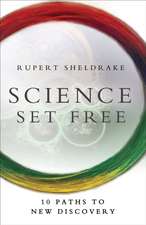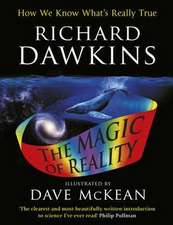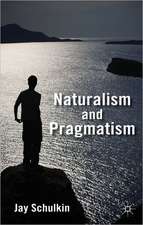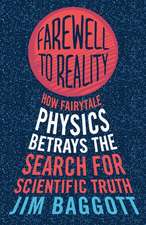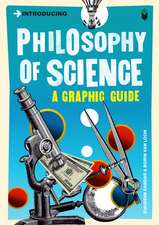Special Sciences and the Unity of Science: Logic, Epistemology, and the Unity of Science, cartea 24
Editat de Olga Pombo, Juan Manuel Torres, John Symons, Shahid Rahmanen Limba Engleză Paperback – 16 apr 2014
| Toate formatele și edițiile | Preț | Express |
|---|---|---|
| Paperback (1) | 561.68 lei 38-44 zile | |
| SPRINGER NETHERLANDS – 16 apr 2014 | 561.68 lei 38-44 zile | |
| Hardback (1) | 572.40 lei 38-44 zile | |
| SPRINGER NETHERLANDS – feb 2012 | 572.40 lei 38-44 zile |
Din seria Logic, Epistemology, and the Unity of Science
- 15%
 Preț: 645.60 lei
Preț: 645.60 lei - 18%
 Preț: 1233.06 lei
Preț: 1233.06 lei - 18%
 Preț: 995.94 lei
Preț: 995.94 lei - 18%
 Preț: 1712.87 lei
Preț: 1712.87 lei - 18%
 Preț: 945.62 lei
Preț: 945.62 lei - 18%
 Preț: 1235.25 lei
Preț: 1235.25 lei - 18%
 Preț: 1224.06 lei
Preț: 1224.06 lei - 18%
 Preț: 955.70 lei
Preț: 955.70 lei - 15%
 Preț: 644.95 lei
Preț: 644.95 lei - 24%
 Preț: 1058.23 lei
Preț: 1058.23 lei - 20%
 Preț: 558.63 lei
Preț: 558.63 lei - 24%
 Preț: 878.92 lei
Preț: 878.92 lei - 18%
 Preț: 1236.99 lei
Preț: 1236.99 lei - 24%
 Preț: 896.30 lei
Preț: 896.30 lei - 24%
 Preț: 791.27 lei
Preț: 791.27 lei - 24%
 Preț: 727.49 lei
Preț: 727.49 lei - 24%
 Preț: 789.90 lei
Preț: 789.90 lei - 20%
 Preț: 560.31 lei
Preț: 560.31 lei - 20%
 Preț: 568.74 lei
Preț: 568.74 lei - 24%
 Preț: 1046.22 lei
Preț: 1046.22 lei - 24%
 Preț: 698.18 lei
Preț: 698.18 lei - 20%
 Preț: 549.89 lei
Preț: 549.89 lei - 18%
 Preț: 958.73 lei
Preț: 958.73 lei - 20%
 Preț: 580.53 lei
Preț: 580.53 lei - 20%
 Preț: 561.44 lei
Preț: 561.44 lei
Preț: 561.68 lei
Preț vechi: 702.09 lei
-20% Nou
Puncte Express: 843
Preț estimativ în valută:
107.49€ • 111.81$ • 88.74£
107.49€ • 111.81$ • 88.74£
Carte tipărită la comandă
Livrare economică 10-16 aprilie
Preluare comenzi: 021 569.72.76
Specificații
ISBN-13: 9789400792135
ISBN-10: 9400792131
Pagini: 308
Ilustrații: VI, 302 p.
Dimensiuni: 155 x 235 x 16 mm
Greutate: 0.44 kg
Ediția:2012
Editura: SPRINGER NETHERLANDS
Colecția Springer
Seria Logic, Epistemology, and the Unity of Science
Locul publicării:Dordrecht, Netherlands
ISBN-10: 9400792131
Pagini: 308
Ilustrații: VI, 302 p.
Dimensiuni: 155 x 235 x 16 mm
Greutate: 0.44 kg
Ediția:2012
Editura: SPRINGER NETHERLANDS
Colecția Springer
Seria Logic, Epistemology, and the Unity of Science
Locul publicării:Dordrecht, Netherlands
Public țintă
ResearchCuprins
1. Introduction.- 2.Pragmatic continuities in Empirical Science. Some Examples from the History of Astronomy; Maria de la Concepcion Caamaño Alegre.- 3. The Principle of Eurhythmy. A Key to the Unity of Physics; J.R. Croca.- 4. Unifying Science through Computation: Reflection on Computability and Physics; Edwin J. Beggs; José Félix Costa; John V. Tucker.- 5. Looking at Water through Paradigms; A. Perera; F. Sokolić.- 6. Introducing Universal Symbiogenesis; Nathalie Gontier.- 7. The Symbiotic Phenomenon in the Evolutive Context; Francisco Carrapiço.- 8. Plant Neurobiology: Lessons for the Unity of Science; Paco Calvo Garzón.- 9. Computer Science meets Evolutionary Biology: Pure Possible Processes and the Issue of Gradualism; Philippe Huneman.- 10. Evolutionary Phsychology and the Unity of Sciences – Towards an Evolutionary Epistemology; Luís Moniz Pereira.- 11. Unity of Science and Pluralism: Cognitive Neurosciences of Racial Prejudice as a Case Study; Luc Faucher.- 12. Sciences as Open Systems: The Case of Economics; Vítor Neves.- 13. Plurality of Science and Rational Integration of Knowledge; Catherine Laurent.- 14. A Physicalist Reconstruction of a Theory: the Case of the Freudian Theory of Hysteria; César Lorenzano.- 15. The Cultural Sciences and their Basis in Life. On Ernst Cassirer’s Theory of the Cultural Sciences; Christian Möckel.- 16. Appearance on Existence of the Entity Realism ‘Sense’ or Mind; A. Yazdini.- 17. Fiction, Counterfactuals: The Challenge for Logic; Brian Hill.-
Recenzii
From the reviews:
“The volume at hand … covers a wide range of special sciences from astronomy and physics to Freudian theory and the cultural sciences. … essays collected in this volume are of interest to philosophers working in these areas. The approach taken in this book fits within the broader context of bringing fresh ideas to an old debate. … The papers contain an interesting balance between scientific depth and philosophical speculation on how the unity of the sciences might work in some actual cases … .” (Hinne Hettema, Philosophy in Review, Vol. XXXIII (4), 2013)
“The volume at hand … covers a wide range of special sciences from astronomy and physics to Freudian theory and the cultural sciences. … essays collected in this volume are of interest to philosophers working in these areas. The approach taken in this book fits within the broader context of bringing fresh ideas to an old debate. … The papers contain an interesting balance between scientific depth and philosophical speculation on how the unity of the sciences might work in some actual cases … .” (Hinne Hettema, Philosophy in Review, Vol. XXXIII (4), 2013)
Textul de pe ultima copertă
Science is a dynamic process in which the assimilation of new phenomena, perspectives, and hypotheses into the scientific corpus takes place slowly. The apparent disunity of the sciences is the unavoidable consequence of this gradual integration process. Some thinkers label this dynamical circumstance a ‘crisis’. However, a retrospective view of the practical results of the scientific enterprise and of science itself, grants us a clear view of the unity of the human knowledge seeking enterprise. This book provides many arguments, case studies and examples in favor of the unity of science. These contributions touch upon various scientific perspectives and disciplines such as: Physics, Computer Science, Biology, Neuroscience, Cognitive Psychology, and Economics.
Caracteristici
Unique work on the tension between unity and specialization in science Provocative questions to test the hypothesis of science unification from a interdisciplinary perspective. For example: is Evolutionary Biology part of Computer Science? Offers a set of case-studies in favour of the Unity of Science
